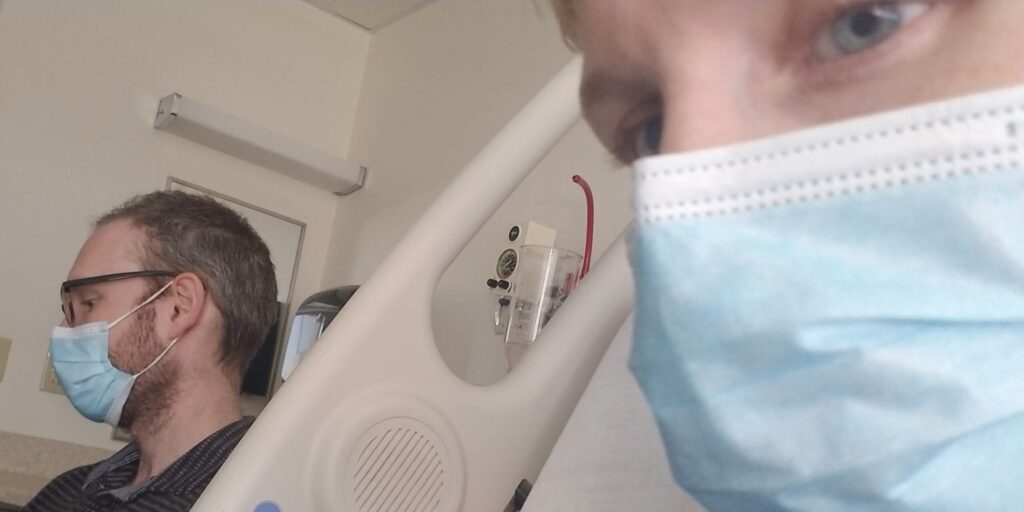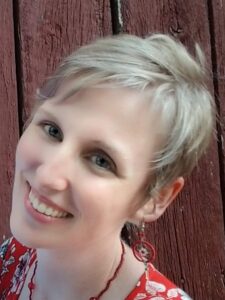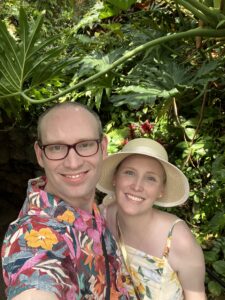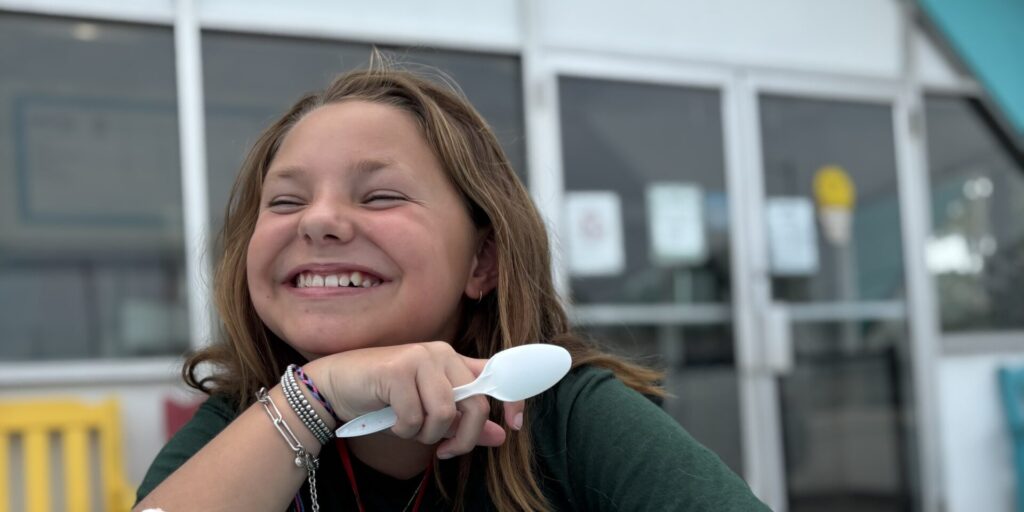
MDA Ambassador Guest Blog: Finding Freedom in Accepting My Disability
By Rebecca C. Ball-Schaller | Monday, March 25, 2024
5 Second Summary
MDA Ambassadors play an essential role in furthering MDA’s mission while representing and empowering the neuromuscular disease community. Quest Ambassador Guest Blog series provides a platform to share their personal stories, perspectives, and experience.
Rebecca C. Ball-Schaller, who goes by Becca, is an avid crafter, Christmas fanatic, and cat lover. Her guilty pleasure is watching old horror films. She lives in Pennsylvania with her husband where she works as a middle school teacher.

Rebecca C. Ball-Schaller
The journey to my diagnosis has been a long one. Out of the six children born to my parents, three of us were affected with symptoms of a neuromuscular disease, including: weakness, muscle tightness, toe walking etc. My mother also presented with symptoms. Around 1995, doctors told us that we most likely had a form of muscular dystrophy, but they were unable to specify the type. It seemed as though every doctor and neurologist had a different theory of what type it was. Without a specific diagnosis, I had no idea what my prognosis might be, if I should keep an eye on my heart, if I would lose the ability to walk, or what my lifespan might be. Whenever I tried to broach the subject with my family, I was reminded that my mother was relatively healthy so I should assume that I would be too. However, in my thirties that no longer seemed the case.
The unknown was terrifying.
One of the worst aspects in trying to understand our disability was that it seemed to be affecting each of us in different ways. My mother had a very mild form and showed very limited symptoms while one of my siblings’ muscles were tightening at an alarming rate, and I seemed to be rapidly growing weaker. Stairs had never been an easy task, now they became nearly impossible for me to navigate. My falls became more frequent. When I could no longer get up from a fall without assistance, I started my adult journey into getting a specific diagnosis.
It was an incredibly hard step for me to take. My family did not discuss our dystrophy. It was seen as shameful and taboo. We were simply made to power through it or live with it. Having a physical disability can be very isolating, especially if you are taught to hide it and be ashamed of it.
When you deny or shame a disability or a person with a disability, it actively harms and hurts them. That hurt is experienced emotionally, mentally, and physically. They embody that shame. They actively feel it. I was taught to hide my disability whenever physically possible. I had to push myself to do things, often to the point of physically harming myself. I was forced to act ‘normal’ and do what ‘normal’ kids do. If I injured myself or struggled in gym class, the sentiment at home was that it was my fault – that I should have hid it better or pushed myself harder.
This is something I still struggle with as an adult. A year ago, I was terrified to approach loved ones and friends to bring them into the loop about my health. My cheeks burned and I cried as I let out my secret, but now, looking back, it seems like so much wasted stress and energy. Asking for help and getting a diagnosis were the first steps in truly freeing myself.
The world can be difficult and isolating as it is. Refusing to acknowledge your disability can only make it more so. I personally understand that sharing and owning your disability can seem insurmountable.

My husband and me celebrating my diagnosis
My diagnosis journey took a few years and many doctors. At times it was discouraging. One doctor thought I might be a carrier for Duchenne and seemed almost panicked as he said it. Another doctor literally shrugged off my concerns and told me to get a walker. He never ran a single test and I saw him for less than three minutes. Finally, through UPMC, an MDA Care Center, I found the right specialist and a genetic counselor who were able to put a name to my dystrophy: Bethlem myopathy.
Even though Bethlem myopathy currently does not have a cure, I celebrated my diagnosis. Finally, I had information. So many pieces of the puzzle began to fit into place. My symptoms made sense. I now knew my prognosis and what to keep an eye on.
Embracing my disability actually opened up my world. Through programs at MDA (such as peer connections) I was able to meet people who actually understood what I was going through. I was able to find services and accommodations that I didn’t even know existed. I was able to apply for a mobility service dog, something I didn’t even know was possible. My quality of life has significantly improved since I stopped trying to power through or hide my disability. Being honest and open with others and myself has allowed me to ask for much needed accommodations and help.
As I continue to move forward, my disability has also blended with my role as an educator. Most people have never had a prolonged encounter with someone who has a physical disability. My disability provides me with a unique opportunity to educate others. I hope this role will provide knowledge, understanding, and compassion. I hope to help others see they don’t have to be ashamed to live with disability.
Next Steps and Useful Resources
- For more information about the signs and symptoms of Bethlem CMD, as well an overview of diagnosis and treatment concerns, an in-depth review can be found here.
- To learn more about MDA’s Mental Health Hub, visit here.
- MDA’s Resource Center provides support, guidance, and resources for patients and families. Contact the MDA Resource Center at 1-833-ASK-MDA1 or ResourceCenter@mdausa.org
- Stay up-to-date on Quest content! Subscribe to Quest Magazine and Newsletter.
Disclaimer: No content on this site should ever be used as a substitute for direct medical advice from your doctor or other qualified clinician.




